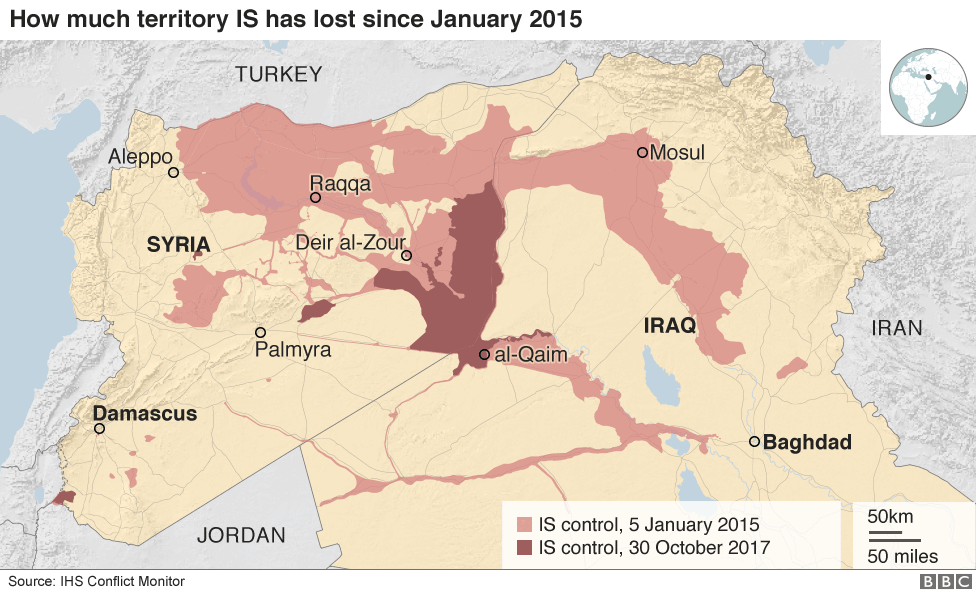By Julia Taliesin
Staff Writer
Iraqi forces, supported by the United States, are now gearing up to take back Rawa, the last city held by the Islamic State (IS) in Iraq.
IS has been steadily losing territory in Iraq and Syria for months. According to the BBC, Rawa is the last Iraqi city left under IS control after the city of al-Qaim fell in early November. Around the same time, IS also lost their last urban strongholds in Syria, Deir al-Zour and Albu Kamal. If Iraqi forces take back Rawa, all that would be left are a few rural areas along the Iraqi-Syrian border.
This is a significant victory. According to the BBC, over 4 million Iraqis have been liberated from IS rule and IS has lost 95 percent of its land. Furthermore, the loss of the Syrian city Albu Kamal and the Iraqi city al-Qaim dismantled the unofficial IS “cross-border province” along the Euphrates river, which facilitated IS trade and symbolized their intention to erase the region’s borders.
This does not, however, mean it is time to celebrate yet. IS has always been a group with a powerful online presence, and this will likely continue even though the group has lost physical territory.
The BBC’s Arab Affairs Editor Sebastian Usher noted that “the territorial ambitions of IS are now all but destroyed although its ideology remains powerful.”

The power of IS ideology has been demonstrated in the individual and unpredictable attacks carried out in cities all over Europe and the U.S. Vox reported there is also concern that while IS has lost physical territory in Iraq and Syria, militants will carry out individual attacks to slowly wear down communities and gain back pockets of land in the area.
Charlie Winter, a senior research fellow at the International Centre for the Study of Radicalisation in London, says that these territory losses have had an impact on their online presence. IS will not disappear, he says in a BBC article, but it will not thrive. He reports that the presence of online propaganda is lower than ever due to several factors: territorial losses, fewer fighters, and internet regulation.
The IS “problem hasn’t gone away, it’s just changed,” Winter said. The threat is indeed morphing, as international IS supporters can access small amounts of information on home-made weapon creation and attack plans.
Another factor concerning the United Nations is the number of foreign fighters that have joined IS. Politico reported in 2016 that the number of foreign fighters was around 30,000 individuals. Now that IS is losing physical territory, the UN is concerned that these fighters will return home and carry out terrorist attacks in their home countries.
While IS ideology is still powerful, there is reason for optimism. The end of IS is not yet upon us, but the loss of territory has left them reeling.


















